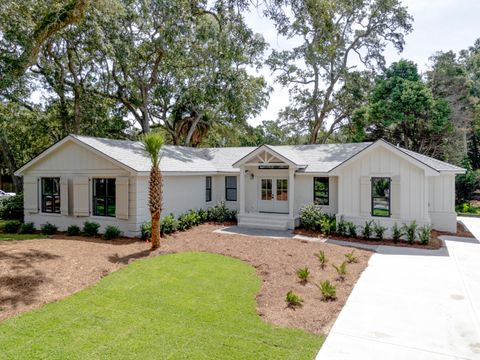
| | Year-End Home Paperwork You’ll Thank Yourself For in April
|  | Whether you bought, sold, refinanced, or simply maintained your place this year, a tidy “home file” now saves hours – and dollars – when taxes hit in April. Here’s a practical plan you can finish before the ball drops.
 Gather Your Mortgage and Property Tax Records Gather Your Mortgage and Property Tax Records
Start by collecting your mortgage interest statements – most lenders issue them in January, but it’s smart to confirm your mailing or online delivery preferences now.
Also, make sure you’ve saved all property tax bills and payment receipts. Even if you pay through escrow, check your year-end statements to see the total taxes paid.
Pro tip: Keep your mortgage, insurance, and property tax files together in one digital or physical folder – it’ll make itemizing much easier.
Track Home Improvements and Repairs
Home upgrades don’t just make your space more enjoyable – they can also affect your taxes when you sell. Improvements that increase your home’s value or extend its life (like a new roof, addition, or HVAC system) add to your property’s “cost basis,” potentially lowering your capital gains taxes later.
What to keep:
- Contractor invoices and receipts
- Building permits
- Before-and-after photos (for proof of value-added work)
Skip: Routine maintenance like painting or landscaping – those don’t count as improvements.
Collect Energy-Efficiency Receipts and Certificates
If you made energy-saving upgrades this year – like installing solar panels, new windows, insulation, or an energy-efficient heat pump – hold onto the receipts and manufacturer certification statements.
These are often required to claim federal energy tax credits, and the paperwork can be easy to misplace by spring.
Pro tip: Create a separate folder titled “2025 Energy Credits” so you can find these quickly come April.
Organize Home Office Expenses (If You Work from Home)
If you use part of your home for work, keep clear records of the space’s size and any related expenses – such as internet, utilities, and repairs made specifically for that area.
Keep:
- Utility bills
- Internet service statements
- Equipment receipts (like office furniture or upgrades)
Pro tip: Take a quick photo of your workspace setup before year-end – it can help document your claim if needed.
Save Closing Documents if You Bought or Sold This Year
Real estate transactions come with lots of paperwork – and much of it matters at tax time. Whether you bought or sold a home in 2025, make sure your closing disclosure, settlement statement, and proof of major expenses (like agent commissions or points paid) are neatly stored.
Buyers may need these to calculate deductions; sellers may need them for capital gains records later.
Review Home Insurance and Warranty Paperwork
It’s also a good time to check that your homeowners insurance declarations page is current and that any warranty or coverage documents are easy to find. You may not need them for taxes directly, but they’re essential for proving losses or claims should anything arise.
A little year-end organization goes a long way. By setting aside an hour or two now to gather your home-related paperwork, you’ll start tax season prepared – and might even uncover savings you’d otherwise overlook.
If you’d like a simple homeowner document checklist or need guidance on which records matter most for your property, I can help you get started. Let’s make sure your 2025 files are clean, complete, and ready to roll into the new year.
| | | | The Art of Creative Gift Wrapping: Repurposing Household Items for Beautiful Presentations |  | The holidays are here, and while you're busy making your house feel like home for family gatherings, why not extend that same creative spirit to your gift wrapping? You don't need expensive wrapping paper or fancy ribbons to create stunning presentations. Some of the most beautiful and memorable gift wrap comes from items you already have around the house.

Turn Your Home Into a Wrapping Wonderland
Start by looking at your home with fresh eyes. That stack of newspapers becomes vintage-chic wrapping paper, especially the comic sections for kids' gifts. Brown paper bags transform into rustic, elegant wrap when turned inside out. Even old maps, sheet music, or magazine pages can create unique, personalized presentations that recipients will remember long after the gift is unwrapped.
Natural Elements from Your Yard
Step outside and gather nature's free decorations. Pinecones, evergreen sprigs, and dried flowers make gorgeous toppers that smell amazing too. If you have a garden, dried herbs like rosemary or lavender add a lovely fragrance and can be used in cooking later. These natural touches give your gifts an organic, thoughtful feel that store-bought bows simply can't match.
Fabric and Texture Magic
Raid your linen closet for wrapping inspiration. Old scarves, tea towels, or fabric scraps work beautifully as reusable gift wrap – the Japanese call this "furoshiki." Not only does it look sophisticated, but the fabric becomes part of the gift. Burlap coffee sacks, if you can find them, create a charming farmhouse aesthetic.
Kitchen Creativity
Your kitchen holds surprising wrapping treasures. Twine meant for cooking doubles as rustic ribbon. Mason jar lids can become gift tags when tied with string. Even aluminum foil, when crumpled and smoothed, creates an interesting metallic texture that catches the light beautifully.
Personal Touches That Matter
The most meaningful gifts often come wrapped in the most unexpected ways. Use your children's artwork as wrapping paper, or create custom gift tags from old greeting cards. These personal touches show thoughtfulness that expensive materials never could.
Just as I help my clients see the potential in every corner of their homes – whether they're buying their first house, selling a longtime residence, or simply making their current space more functional – creative gift wrapping is about recognizing the hidden possibilities all around you.
If you're thinking about how your home's storage and organization could work better for your family's needs this holiday season and beyond, I'd love to help you explore your options and make your space work beautifully for your lifestyle.
| | | | | | | |
contract@wandohomes.com
findahomeincharlestonsc.com | The Boulevard Company. If you have a brokerage relationship with another agency, this is not intended as a solicitation. All information deemed reliable but not guaranteed. Equal Opportunity Housing Provider. Each office is independently owned and operated.   | | | | |
Team OShea - The Boulevard Co | 35 Broad Street | Charleston | SC | 29451







 Gather Your Mortgage and Property Tax Records
Gather Your Mortgage and Property Tax Records





